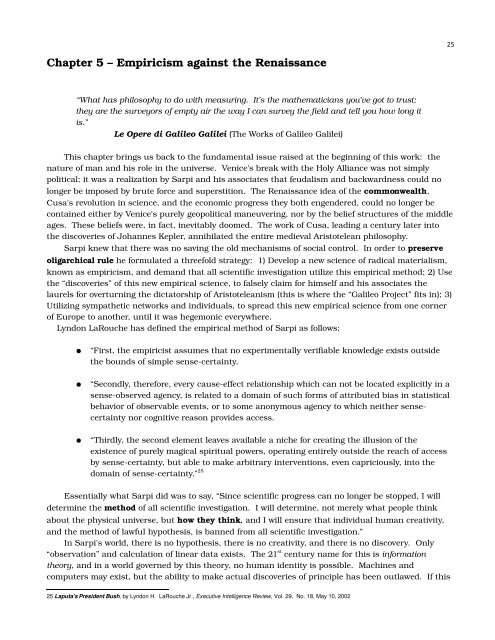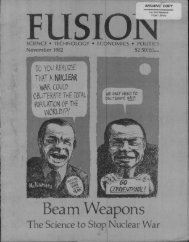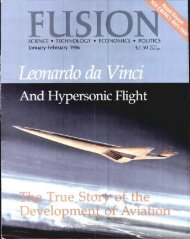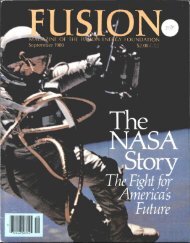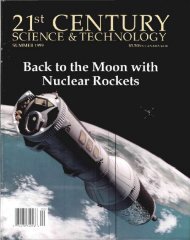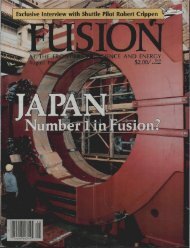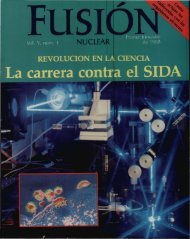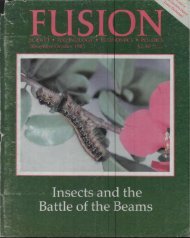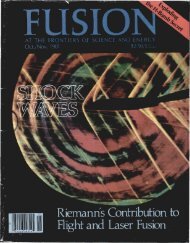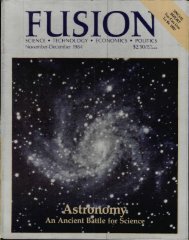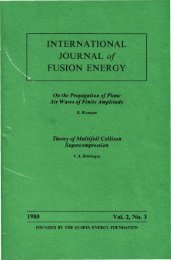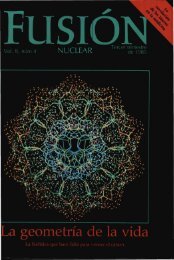You also want an ePaper? Increase the reach of your titles
YUMPU automatically turns print PDFs into web optimized ePapers that Google loves.
25<br />
Chapter 5 – Empiricism against the Renaissance<br />
“What has philosophy to do with measuring. It’s the mathematicians you’ve got to trust;<br />
they are the surveyors of empty air the way I can survey the field and tell you how long it<br />
is.”<br />
Le Opere di Galileo Galilei (<strong>The</strong> Works of Galileo Galilei)<br />
This chapter brings us back to the fundamental issue raised at the beginning of this work: the<br />
nature of man and his role in the universe. Venice's break with the Holy Alliance was not simply<br />
political; it was a realization by Sarpi and his associates that feudalism and backwardness could no<br />
longer be imposed by brute force and superstition. <strong>The</strong> Renaissance idea of the commonwealth,<br />
Cusa's revolution in science, and the economic progress they both engendered, could no longer be<br />
contained either by Venice's purely geopolitical maneuvering, nor by the belief structures of the middle<br />
ages. <strong>The</strong>se beliefs were, in fact, inevitably doomed. <strong>The</strong> work of Cusa, leading a century later into<br />
the discoveries of Johannes Kepler, annihilated the entire medieval Aristotelean philosophy.<br />
Sarpi knew that there was no saving the old mechanisms of social control. In order to preserve<br />
oligarchical rule he formulated a threefold strategy: 1) Develop a new science of radical materialism,<br />
known as empiricism, and demand that all scientific investigation utilize this empirical method; 2) Use<br />
the “discoveries” of this new empirical science, to falsely claim for himself and his associates the<br />
laurels for overturning the dictatorship of Aristoteleanism (this is where the “Galileo Project” fits in); 3)<br />
Utilizing sympathetic networks and individuals, to spread this new empirical science from one corner<br />
of Europe to another, until it was hegemonic everywhere.<br />
Lyndon LaRouche has defined the empirical method of Sarpi as follows:<br />
●<br />
“First, the empiricist assumes that no experimentally verifiable knowledge exists outside<br />
the bounds of simple sensecertainty.<br />
●<br />
“Secondly, therefore, every causeeffect relationship which can not be located explicitly in a<br />
senseobserved agency, is related to a domain of such forms of attributed bias in statistical<br />
behavior of observable events, or to some anonymous agency to which neither sensecertainty<br />
nor cognitive reason provides access.<br />
●<br />
“Thirdly, the second element leaves available a niche for creating the illusion of the<br />
existence of purely magical spiritual powers, operating entirely outside the reach of access<br />
by sensecertainty, but able to make arbitrary interventions, even capriciously, into the<br />
domain of sensecertainty.” 25<br />
Essentially what Sarpi did was to say, “Since scientific progress can no longer be stopped, I will<br />
determine the method of all scientific investigation. I will determine, not merely what people think<br />
about the physical universe, but how they think, and I will ensure that individual human creativity,<br />
and the method of lawful hypothesis, is banned from all scientific investigation.”<br />
In Sarpi's world, there is no hypothesis, there is no creativity, and there is no discovery. Only<br />
“observation” and calculation of linear data exists. <strong>The</strong> 21 st century name for this is information<br />
theory, and in a world governed by this theory, no human identity is possible. Machines and<br />
computers may exist, but the ability to make actual discoveries of principle has been outlawed. If this<br />
25 Laputa's President Bush, by Lyndon H. LaRouche Jr., Executive Intelligence Review, Vol. 29, No. 18, May 10, 2002


